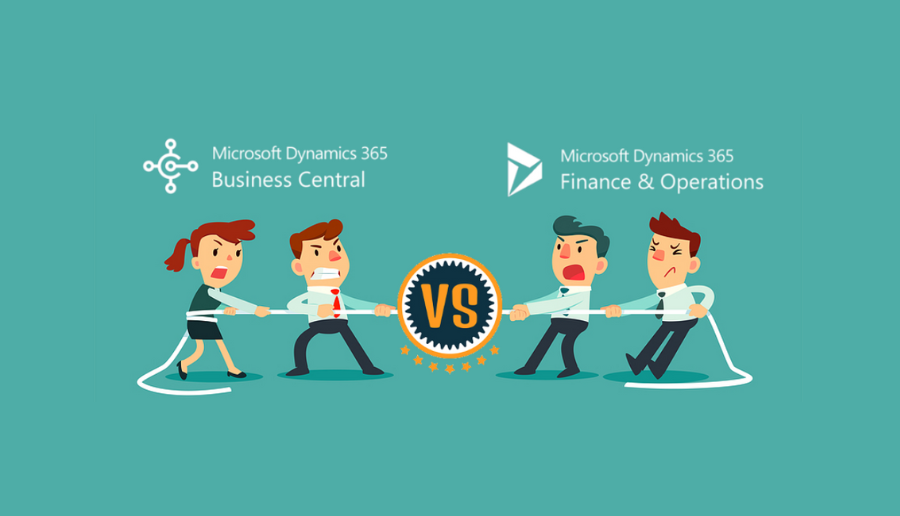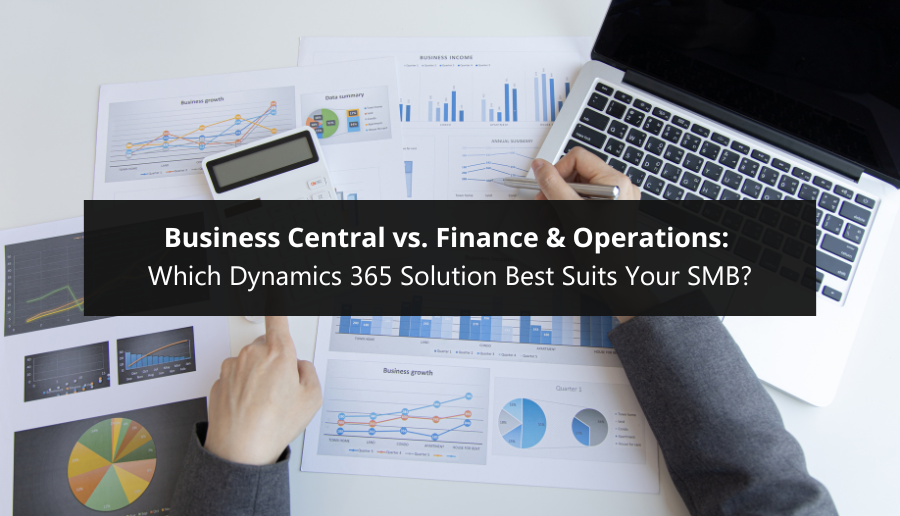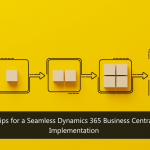Whether you are transitioning from an on-premises solution or evaluating a new ERP system, understanding the differences between Dynamics 365 Business Central (BC) and Dynamics 365 Finance & Supply Chain Management (F&SCM) is crucial. Let’s explore the key factors together, so you can make an informed decision that aligns with your business needs.
Select the scenario below that best describes your current situation, and we’ll guide you through the comparison.
Scenario 1: Mid-Market ERP Transition
If you are currently using Microsoft Dynamics NAV, GP, SL, or another mid-market ERP like NetSuite, Acumatica, or Intacct, and considering whether Dynamics 365 BC or F&SCM is the better fit for your evolving needs, this article is tailored for you. We will provide you with the criteria to consider, to assist you in making the right choice.
Scenario 2: Transitioning from a Complex AX Environment
Are you currently utilizing Microsoft Dynamics AX but finding it overwhelming and too complex for your requirements? If you believe your AX environment is an “overkill” and you’re seeking a more streamlined and user-friendly solution, we will explore whether Dynamics 365 BC or F&SCM is the ideal fit for your business. Let’s dive into the comparisons.
Why Should You Pick BC over F&SCM?
Budget: If cost is a significant consideration, BC may be the better fit for your organization. BC offers a more cost-effective implementation compared to F&SCM. The investment required for BC is typically around 30% of the cost of F&SCM implementation, making it an attractive option for businesses with limited budgets.
Timeline: BC implementations tend to have shorter implementation timelines. While F&SCM implementations can span over 2 years or more, BC implementations typically take 6 months to 1 year. If you have a shorter timeline and need to get up and running quickly, BC can provide a more expedited implementation process.
Functional Requirements: If your business doesn’t need specific capabilities such as Localization or Process Manufacturing, BC could be a suitable option. BC provides a comprehensive range of core functions that can fulfill the requirements of many organizations without the additional complexity of specialized features.
Why Should I pick F&SCM over BC?
Localization Requirements: If your business operates in multiple countries and requires extensive localization capabilities, F&SCM is designed to handle these complex requirements. With F&SCM, you can manage operations across multiple locations, currencies, tax regulations, and legal compliance in a unified system.
Process Manufacturing Requirements: For businesses involved in process manufacturing, such as chemical, pharmaceutical, or food and beverage industries, F&SCM provides dedicated features and functionalities tailored to these specific needs. F&SCM offers advanced capabilities for managing complex manufacturing processes, including batch management, formula management, and quality control.
Very High Transaction Volume and Thousands of Users: If your organization deals with a high volume of transactions or operates with a large number of users, F&SCM is designed to handle these scalability requirements effectively. It offers robust performance and scalability features to support demanding transactional environments with thousands of users concurrently accessing the system.
To make an informed decision, we suggest the following steps:
Get demos: Request demonstrations of both BC and F&SCM to gain firsthand experience and assess how well each solution aligns with your business processes.
Define your scope of requirements: Conduct a comprehensive Business Process Review (BPR) to gain a thorough understanding of your organization’s needs. TMC can assist with the BPR process, or you can hire an independent firm to conduct it on your behalf.
Gather proposals: Request proposals from multiple sources, including Microsoft partners and independent consultants, to compare pricing, implementation timelines, and the level of support provided.
Conduct thorough research: Explore case studies, customer testimonials, and industry reports to gather insights and understand the experiences of other businesses in similar situations.
Avoid relying solely on opinions: While gathering input from experts is valuable, it is essential to validate claims and recommendations with your own research and analysis.
Use the provided information as a starting point: The information provided in this blog serves as a starting point to help you understand the key considerations when comparing BC and F&SCM. However, it is crucial to delve deeper into your specific requirements to make the decision that best suits your company’s unique needs.
Empower Your Decision-Making with TMC
Choosing between Dynamics 365 Business Central and Dynamics 365 Finance & Supply Chain Management is a critical decision that can significantly impact your organization’s operations. By carefully considering factors such as budget, timeline, functional requirements, and your current ERP environment, you can make an informed decision that sets your business on a path towards success. Engaging with TMC or your trusted partner, conducting thorough assessments, and utilizing the information provided here will empower you to choose the solution that best fits your company’s needs. Contact us for a free 1-hour Business Process Review to help you determine the best system for your organization.








